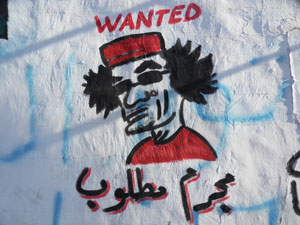The G8 have just released an ambitious and comprehensive asset recovery action plan as part of the Deauville Partnership with Arab Countries in Transition.
It is timely and necessary to reinforce the momentum behind stolen asset recovery processes. The first step by G8 countries was to freeze the accounts of the authoritarian leaders Mubarak, Ben Ali and Gaddafi after their fall from power last year, based on the allegation that the assets held had been illicitly acquired from state coffers. However, there has been too little progress made in returning those assets.
In times of meagre state budgets the G8 now seems to now have acknowledged the need for facilitating the process to return these assets, rumoured to be in the tens of billions.
At a first glance I have to say that I am pretty impressed by the G8 asset recovery action plan. It seems to have acknowledged many of the key challenges involved, including facilitating the mutual legal assistance procedures, for example by designating contact people in the country where the assets are held to improve responsiveness, and by providing in-depth information on the respective legal system and the relevant processes required.
 The US was the first country to publish a US Asset Recovery Guide on 21st May; it is also available in Arabic.
The US was the first country to publish a US Asset Recovery Guide on 21st May; it is also available in Arabic.
Furthermore, G8 countries will consider to enforce non-conviction based confiscation orders wherever possible. This is important for cases where it is difficult to bring prosecutions against corrupt officials, for example in circumstances such as death, flight or absence of the perpetrator and a big step forward.
Also, the action plan includes the setting up of Asset Recovery Task Forces in the country from where the assets were stolen for coordination purposes and specialised training. In addition, the G8 offers support in relevant legal and institutional reforms.
In order to prevent the returned assets from being stolen a second time, the Action Plan suggests to establish a central fund in the concerned country to manage and dispose of assets which can be used for the benefit of the country. A good way to ensure that the returned assets are used for the benefit of citizens would be to enable civil society monitoring of it.
Last but not least, the G8 will be organising an Arab Forum on Asset Recovery in September to initiate a policy dialogue, provide training on these issues and develop a repository about mutual legal assistance and similar requirements of “financial centre” countries.
The key thing here is that the Gulf countries like Qatar and Dubai which have become popular refuges for funds that should not be managed too transparently are also at the table.
Therefore the G8 have taken on board many of civil society’s recommendations outlined in the joint submission to the G20 Anti-Corruption Working Group in February. This is a very positive step and we will now be closely monitoring the implementation of the action plan.
Looking ahead what would still facilitate the process would be if the freezing and return of assets by the “financial centre” country could happen without having to wait for a request from the victim country. In addition, we have been advocating for the right of civil society organisations to take asset recovery cases to court in order to increase public pressure to initiate proceedings as has successfully happened with the Obiang case in France.
It is also important to keep in mind that the Arab region is not the only region facing the situation of stolen assets. Hopefully the UN Convention Against Corruption Working Group on Asset Recovery which will meet in Vienna at the end of August, will be able to build on this encouraging G8 initiative and take concrete steps to develop a global asset recovery action plan.















 Connect with us on Facebook
Connect with us on Facebook Follow us on Twitter
Follow us on Twitter